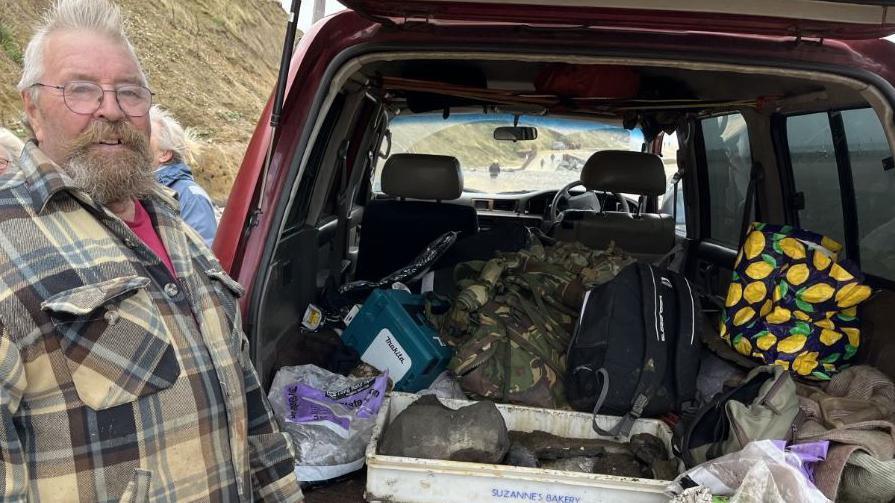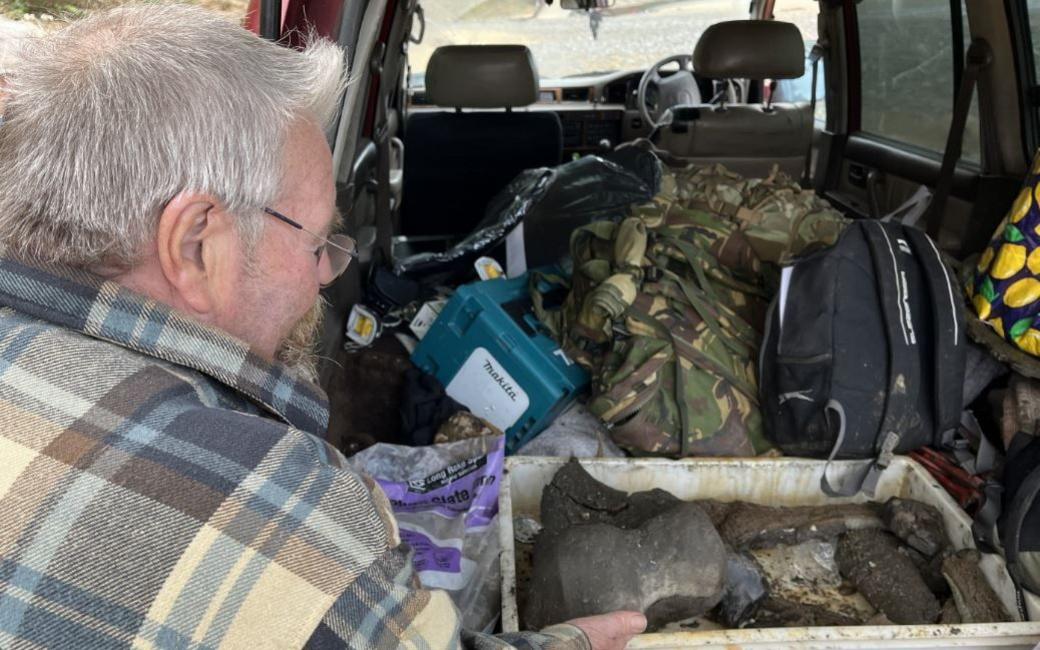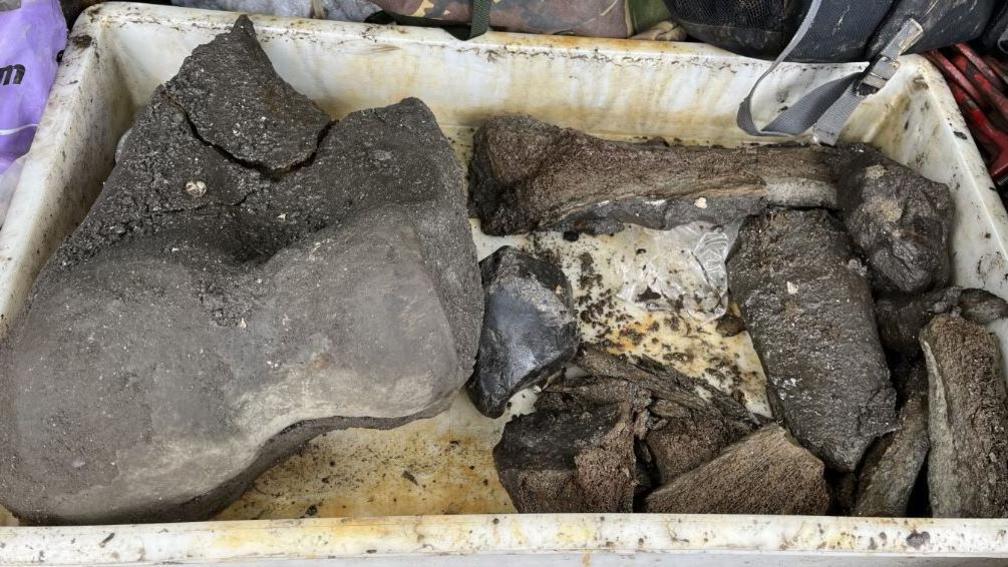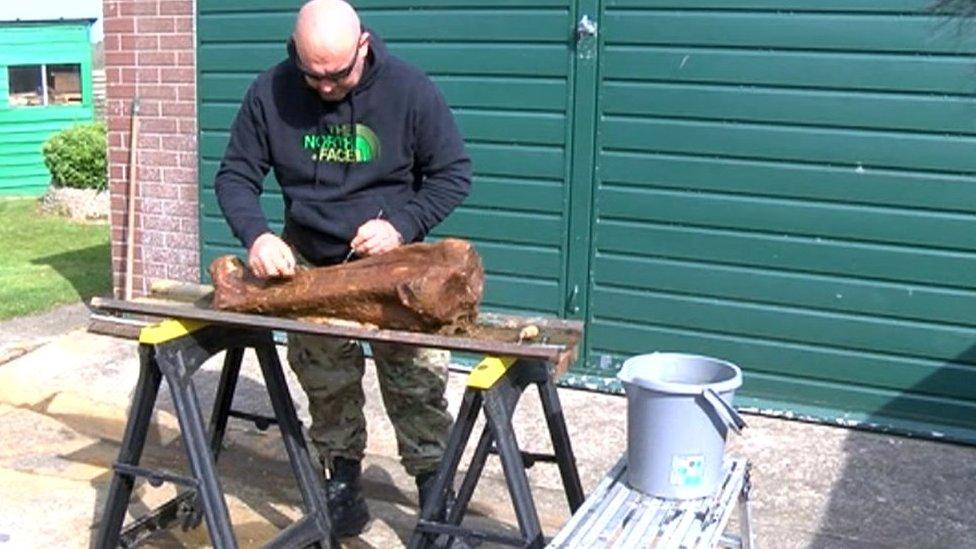Fossil hunters find 'prehistoric' elephant bones

John Clayden said he unearthed the elephant bones, thought to be 800,000 years old, on the north Norfolk coast after a storm
- Published
The bones of a prehistoric elephant have been unearthed in a cliff face after they were exposed in a storm.
The remains were spotted by amateur palaeontologist John Clayden at West Runton, near Cromer in Norfolk, on Tuesday.
He called on fellow fossil hunters to help him recover the bones - thought to be between 650,000 and 800,000 years old - and said future storms could uncover more of the skeleton.
"No one has looked at this animal at all - or maybe they have, but they would have had flint implements with them. That's the joy of it," Mr Clayden added.
According to one expert, the bones could belong to a straight tusked elephant, Steppe mammoth or Southern mammoth, or a species closer to an Indian elephant than cold-favouring woolly mammoths.

Mr Clayden has been helped to retrieve the bones by other amateur fossil hunters
"It was absolutely wonderful," said Mr Clayden about his discovery.
"It's actually nice when you find something you hope will materialise and it's sat there looking at you."
'Juvenile'
Part of an atlas vertebra bone and a toe bone were left sticking out of the cliff edge after the storm wiped away a large part of the sediment.
Mr Clayden said he grouped together some other enthusiasts as soon as he made the discovery to rescue the remains, as he knew they would not survive another storm.
Several bones have been discovered at the spot since November, which has made Mr Clayden hopeful of finding something significant there.
The remains were believed to have been from a juvenile elephant as some were not properly fused together.

It was hoped more elephant bones would be found if there were more storms to pummel the cliff face
The amateur group now planned to collect the bones together before inviting professionals to examine them.
Mr Clayden was also involved in the excavation at West Runton of the most complete elephant skeleton ever to be unearthed in Britain, after it was discovered by locals Harold and Margaret Hems in 1990.
The Steppe mammoth - an ancestor of woolly mammoths - was fully excavated in 1995.
It was now in special storage at Gressenhall Farm and Workhouse - where regular tours were organised - with displays at Cromer Museum and Norwich Castle Museum.
Next year, it was hoped there would be a display of the newly found elephant bones at West Runton's beach cafe.
Storm weather proved beneficial when searching for Mammoth bones at West Runton
Get in touch
Do you have a story suggestion for Norfolk?
Follow Norfolk news on BBC Sounds, Facebook, external, Instagram, external and X, external.
Related topics
- Published13 August 2014
- Published1 May 2017
